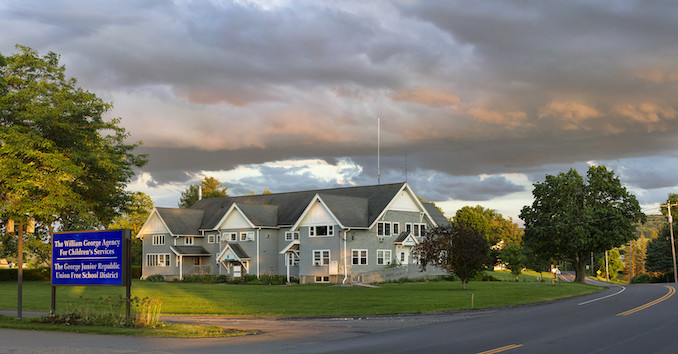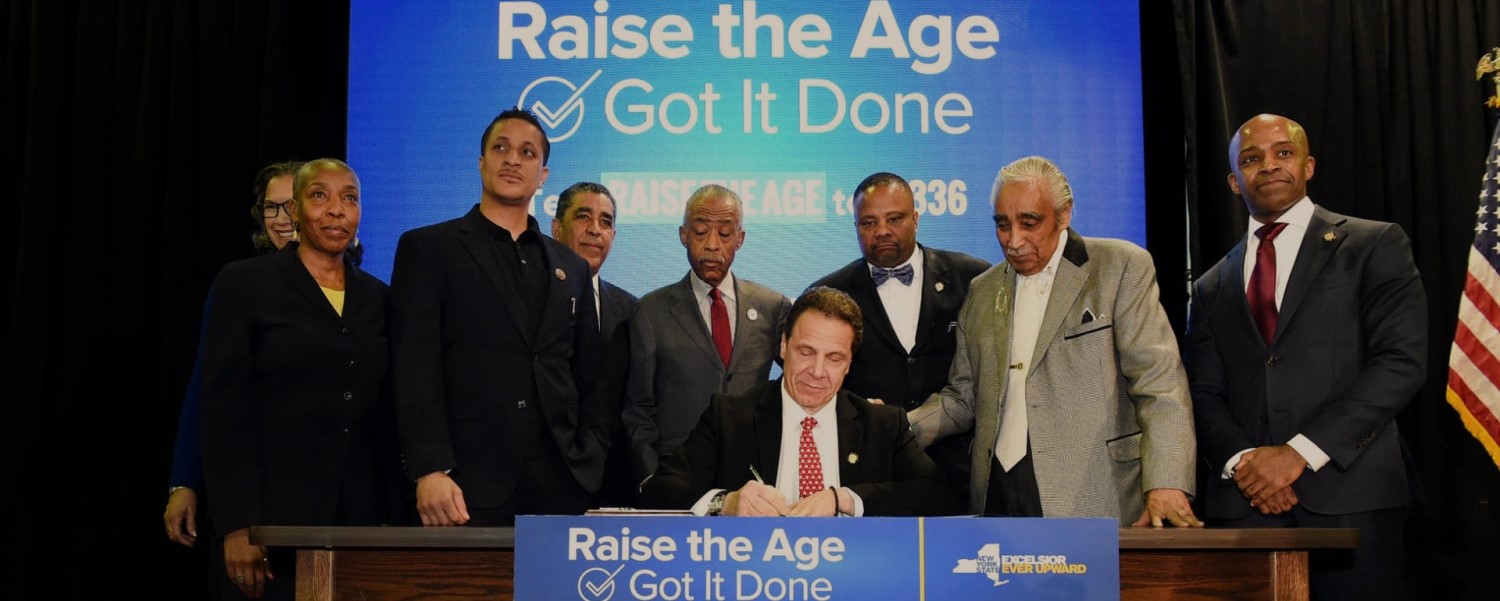September 26, 2019 – TOMPKINS COUNTY, N.Y. – When Gov. Andrew Cuomo signed Raise the Age legislation into law in April 2017, the administration assured counties it was not another unfunded mandate. Implementation of the law, which moves most 16- and 17-year-olds out of the adult criminal justice system, would fall to county governments, but the state would bear the costs, reimbursing counties for 100% of Raise the Age implementation costs.
Accessing the funds has frustrated some counties.
Counties are required to submit comprehensive Raise the Age plans detailing expected expenditures in order to be eligible for reimbursement. By the time the law took effect for 16-year-olds in October 2018, only 29 of 62 counties had submitted draft plans and none were approved, according to the Office of Children and Family Services and Division of Budget. As of May 15, 2019, 29 county plans have been approved and 23 remain under review. Counties are legally required to comply with new youth justice procedures, but they remain unsure of when the state will foot the bill.
Mark LaVigne, deputy director of the New York Association of Counties, said the plan approval process has varied across counties. “Some counties have only required a couple of iterations with a relatively fast approval process; others it has been more lengthy,” he said.
While a majority of plans have been approved, LaVigne said, “counties are currently waiting for the reimbursement process to be finalized so they can begin to submit claims for reimbursement.”
Tompkins County sits at the southern end of Cayuga Lake in the Finger Lakes region and is anchored by the City of Ithaca and Cornell University. The county of about 100,000 was one of the first to submit a Raise the Age plan and secured approval after four iterations. Tompkins’ path to reimbursement suggests that even in the best scenarios, the approval process is not straightforward.
“I’ll tell you why it got approved: we were lucky,” said Kit Kephart, commissioner of the county’s Department of Social Services.
Kephart was part of a team in Tompkins that prepared diligently for Raise the Age implementation. Spearheaded by Patricia Buechel, director of the county’s Department of Probation and Community Justice, a working group including county administrators, law enforcement, the district attorney and county attorney offices, court clerks and other stakeholders met monthly in the run-up to implementation.
“We were very organized,” Buechel said, which is why “it worked out perfectly” when the county sent its first cases to the new “youth part” of the court in December, she said.
Neither Buechel nor Kephart described the county’s preparation as the primary reason it is positioned to receive reimbursements while other counties are still seeking plan approval, though.
The biggest line item on the Tompkins Raise the Age plan is not going to the county. The entry for “other – human services” expenditures totals $12,281,223 over two years, a staggering figure for a county that has processed fewer than five cases in the youth part in the few months since it was created. The $12.3 million, however, is merely being passed through the county and may be the key to its early plan approval.
“When it comes to our approval of the plan, I think what probably influenced that the most is that we have been chosen by OCFS to be an anchor county,” Kephart said.
Statewide, 12 nonprofit agencies were certified to house Raise the Age youth by the time the law took effect, according to the New York State Association of Counties. A handful of counties were selected as “anchor counties” to serve as funding conduits. Tompkins, for instance, will funnel $12.3 million from OCFS to two certified congregate care foster homes that the county had existing contracts with – The Children’s Home of Wyoming Conference in Binghamton and the William George Agency for Children’s Services in Freeville.
Both voluntary agencies have been tasked with upgrading their facilities and expanding their services to meet the needs of 16-year-old, and soon 17-year-old, youths judged to need out of home placements related to delinquency.

Kephart said the arrangement is a way of ensuring programs are in place for kids who previously would have been housed in more restrictive settings. To meet Raise the Age certification requirements, facilities incurred costs, whether for physical modifications like adding locks and security systems or programming changes like adding staff. Those costs could not be easily reimbursed through existing processes, because group foster homes usually receive funds on a per-bed basis. Designating anchor counties is a workaround to allow nonprofit agencies to submit bills for reimbursement before new Raise the Age beds are filled.
“What happened was now those programs send us a bill for the number of beds that have been approved for Raise the Age,” Kephart said. “They send us a bill saying we have this number of beds open and ready, we have this number of staff and it costs us this much, if they have made building modifications or whatever, it cost us this much, they send us that bill.”
The county DSS office passes the bill onto OCFS, and then channels funds from OCFS back to the nonprofit agencies.
“So it’s a pass-through, but it’s a way to make that money happen, and it was the only way obviously we were going to be ready for programs for those kids,” Kephart said.
The process is cumbersome, and it put the county on the line for a significant sum. Kephart said Tompkins was therefore only willing to take on the burden if it had a guarantee that state reimbursement would be forthcoming.
“We said, ‘Yes, we’ll do it, but we need to make sure that we have an approved plan so that we know that money is coming back to us when we make those payments.’ So that’s part of the reason we got an expedited plan, I believe,” she said.
The county’s $12.3 million pass-through paved the way for budget items requested by the county itself to win approval. In comparison to funds for nonprofit agencies, the county’s other projected costs are modest – $53,519 for probation staffing and services in the first year, increasing to $198,838 when 17-year-olds are included, and a total of about $500,000 over two years for detention costs.
Buechel said Tompkins already had several alternatives to incarceration in place for youths prior to the legislation, so Raise the Age has not led to dramatic programming changes at probation.
So far, Buechel said, the department has not hired any new staff because their caseload hasn’t warranted it. The county’s relatively low budget request, she said, probably helped ease the approval of their plan.
Like counties around the state, Tompkins is closely monitoring arrest numbers to see where increased staffing and services are needed and is closely watching Albany to ensure reimbursement comes through.
A spokesperson from the Division of Budget said incremental costs associated with Raise the Age will be reimbursed regardless of the date a county’s plan is submitted and approved, and said “the state is working diligently with the counties to ensure proposals accurately reflect incremental costs that are directly related to Raise the Age implementation and to quickly finalize the remaining plans.”
This article originally ran in the Ithaca Voice and is part one of a three-part series on Raise the Age legislation in New York and its early impacts. This story was produced as part of a Raise the Age reporting fellowship with The Chronicle of Social Change and was co-published with The Ithaca Voice. Reporting for this article was initially completed in August 2019.


